Question from a Reader About the Silica Water Recipe
In this post, I'm answering a question from a reader (actually, two readers have this question) about my recipe for making Homemade Silica Water.
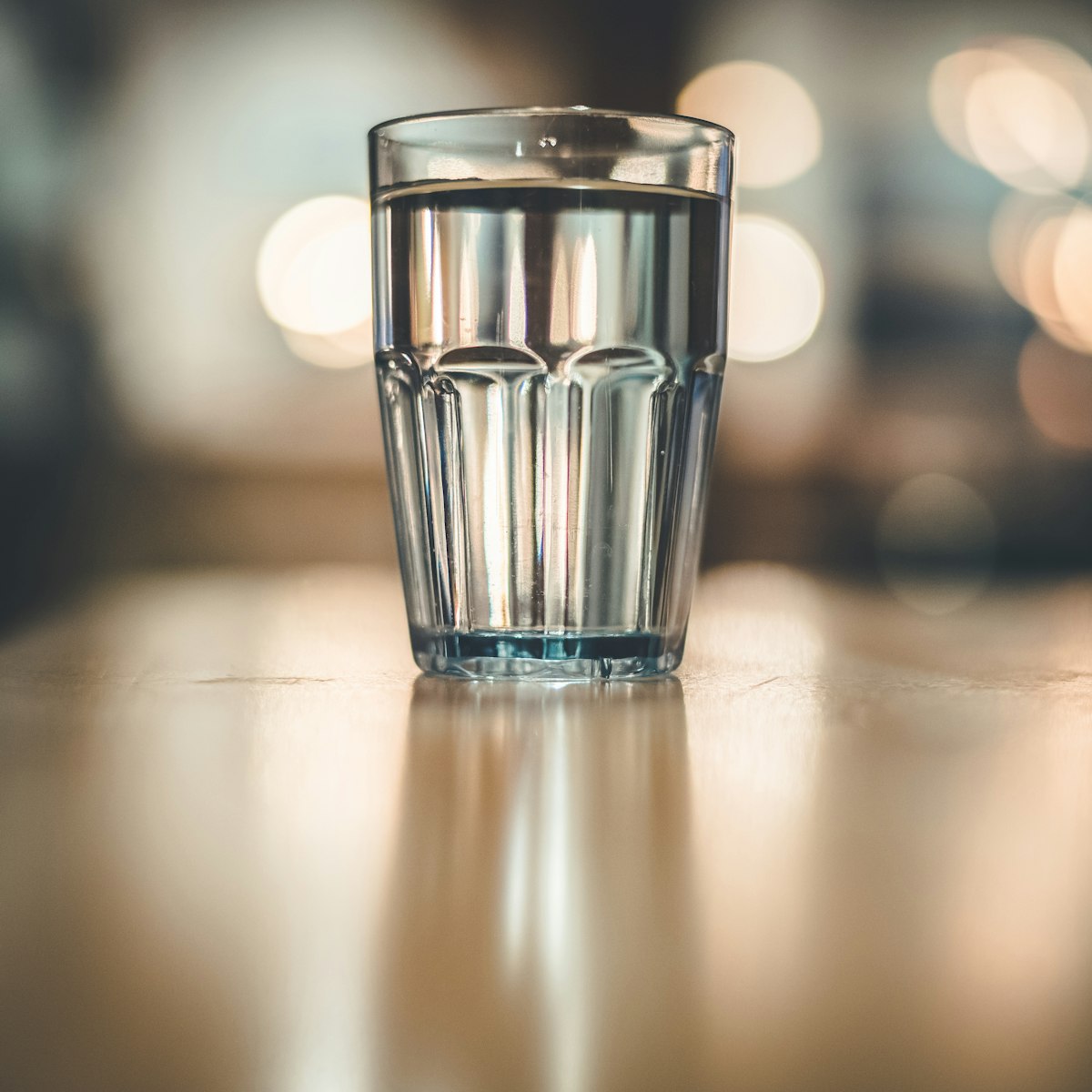
In this post, I'm answering a question from a reader (actually, two readers have this question) about my recipe for making Homemade Silica Water.
Below is the question from Geoff, which he left as a comment on the Silica Water blog post. My answer follows.
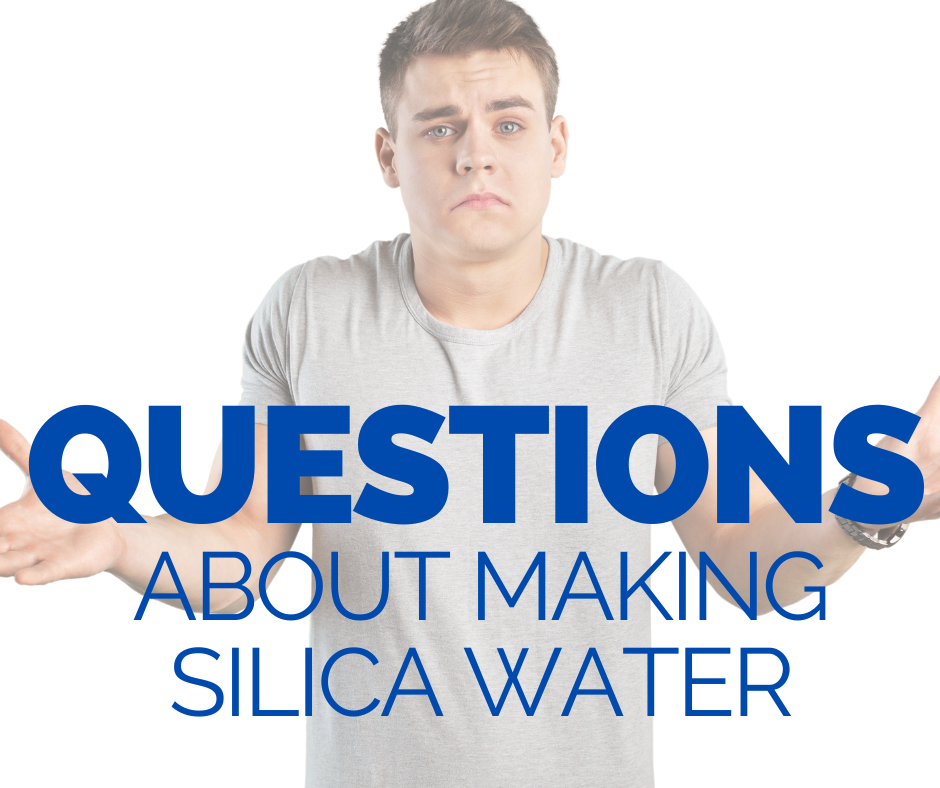
Question from Geoff
Hi Ann Marie,
Great site!!!!!!! Love your take on things!!
I went to Dennis Crouse's site to look up his recipe and now I have some questions for you:
He mentions to filter the final water solution through the Brita Filter to remove impurities from the sodium silicate and Sodium bisulfate. You skip this step? Are you not concerned about the impurities he mentions.
Please explain you reasoning as I would also like use our Berkey system.
Thank you and sorry for the long comment!!
Geoff Bennetts
-------------------------------------------------------------------------------------------------
Excerpt from his frequently asked questions blog:
3. Do I have to use a Brita filter in the recipe or can use the filter I already own?
You must use the Brita filter. The Brita filter removes more than 90% of aluminum, lead and mercury but does not remove the OSA (which is the form of silica in Silicade). Some water filters made by other manufacturers add aluminum to the water. Some filters remove OSA.
4. I am using RO water do I still need to use a Brita filter?
Yes. There are impurities in the ingredients and the Brita will remove these impurities.
-----------------------------------------------------------------------------------------------
His short recipe also suggests that.
Short Recipe for Silicade
Ingredients needed:
Sodium Silicate
Sodium Bisulfate
Baking Soda (sodium bicarbonate)
Tools needed:
Dash measuring spoon = 1/8 tsp
Smidgen measuring spoon = 1/32 tsp
1 cup Pyrex measuring cup
1 gallon measuring container
Brita filter - pitcher style
Spatula for leveling
Stirring utensil
Steps:
1. Add 1 level dash & 2 level smidgens of sodium silicate to a one-cup Pyrex container
2. Add 1/8 cup of tap water to the one-cup Pyrex measuring container
3. Heat the contents of the Pyrex measuring cup to boiling and boil for at least 30 seconds
4. Dilute immediately with a small amount of unheated tap water
5. Pour all the contents of the Pyrex measuring cup into a 1 gallon container
6. Fill the 1 gallon container with unheated tap water to the 1 gallon mark on the container
7. Add 1 level dash of sodium bisulfate to the one gallon container
8. Stir the mixture thoroughly and then filter the mixture through a Brita filter pitcher
9. After filtering, add 2 level smidgens of baking soda (sodium bicarbonate) to the mixture
10. Stir Silicade to dissolve the baking soda
11. Enjoy the health benefits of drinking Silicade!
Silicade can be stored indefinitely in the dark at room temperature or in a refrigerator.
Response from Ann Marie Michaels / Cheeseslave
Hi, Geoff, thank you very much. These are great questions.
I apologize for not seeing them sooner. I have been going through some personal things (divorce, moving) and also, the Ghost platform only recently added comments and they don't have a way to show them on my dashboard so I often miss them.
I do get them via email but my email is a hot mess right now due to big tech censorship.
I'm going to check my email and send you an email with this response to make sure you see it.
Anyway, this has been an evolving project for me. I have been doing a lot of research on this and am getting conflicting answers.
In order to properly answer your questions, I'm going to make a video. In the meantime, I'll give you the short answer.
The short answer is twofold (yes, this is the short answer – Ahhh!!! I'm sorry!!!! LOL):
1. Originally when I made this recipe I was making it in my Berkey. In other words, I would add the silica ingredients directly to the Berkey. I stopped doing that because I noticed my filters were getting a bit "slimy" and I had to clean them (just rinsed under water) because they started filtering very slow.
That is why I decided to add the extra water dispenser and add the ingredients at the end.
So I forgot the part about the final filtering -- because I was doing it in the Berkey and it was filtering it anyway. And Berkeys do not remove silica.
Also, since I've been doing through divorce and moving and have been badly censored -- more reason I hadn't put thought into it.
But now that you say this, I think the answer is to do it like I was originally doing it -- add the silica ingredients directly to the Berkey and then the contaminants will get filtered out.
I can just rinse my Berkey filters every so often to make sure they don't get slimy from the extra minerals from the silica ingredients.
2. Your email actually solves a big sticking point for me so I'm very grateful. I was going round and round re: water filtration research and it was keeping me from moving forward in writing my book.
The first chapter of the book is on water filtration, since that is what I recommend everyone do first and foremost. Then add silica, then consume chlorine dioxide.
Brita Water Filter?
Dr. Crouse uses the Brita which I do not advocate for 3 reasons: (1) it's way too small for families and (2) it's very expensive when you factor in the cost of the filters and (3) it does not filter out fluoride and that is a concern for anyone who has fluoride added to their water.
Dr. Crouse also does not like the Berkey because he says the fluoride filters in the Berkey are activated alumina and that they leech aluminum into the water.
Activated Aluminum Leeching?
I've spent some time looking into this and there seems to be mixed opinions on it. I even asked Dr. Christopher Exley about it in the comments on his blog and he told me to go read his book. I did buy his book, but I haven't had a chance to finish reading it yet (divorce, moving, etc.)
Someone also told me that when they asked Exley about the activated alumina filters on the Berkey, he said he could not recommend them.
So this is a tough situation... and again, it leads me back to my research on water filtration and how to choose and recommend the right water filter. If it weren't for the blasted fluoride being added to the water, we could just go with any of these filters and it would be fine.
Given so many factors (fluoride or no fluoride; the best way to filter fluoride; whether or not activated alumina adds aluminum to the water, etc.) I'm having a hard time recommending to people which filters they should use.
But your question has actually solidified it for me, simply because we need to make this process do-able for people.
And there is so much misinformation about water filters out there right now. Most filters work OK but they charge you a crap-ton for the replacement filters.
I actually started creating a spreadsheet to track it. I'll be posting that when I complete it but here is what it looks like right now...
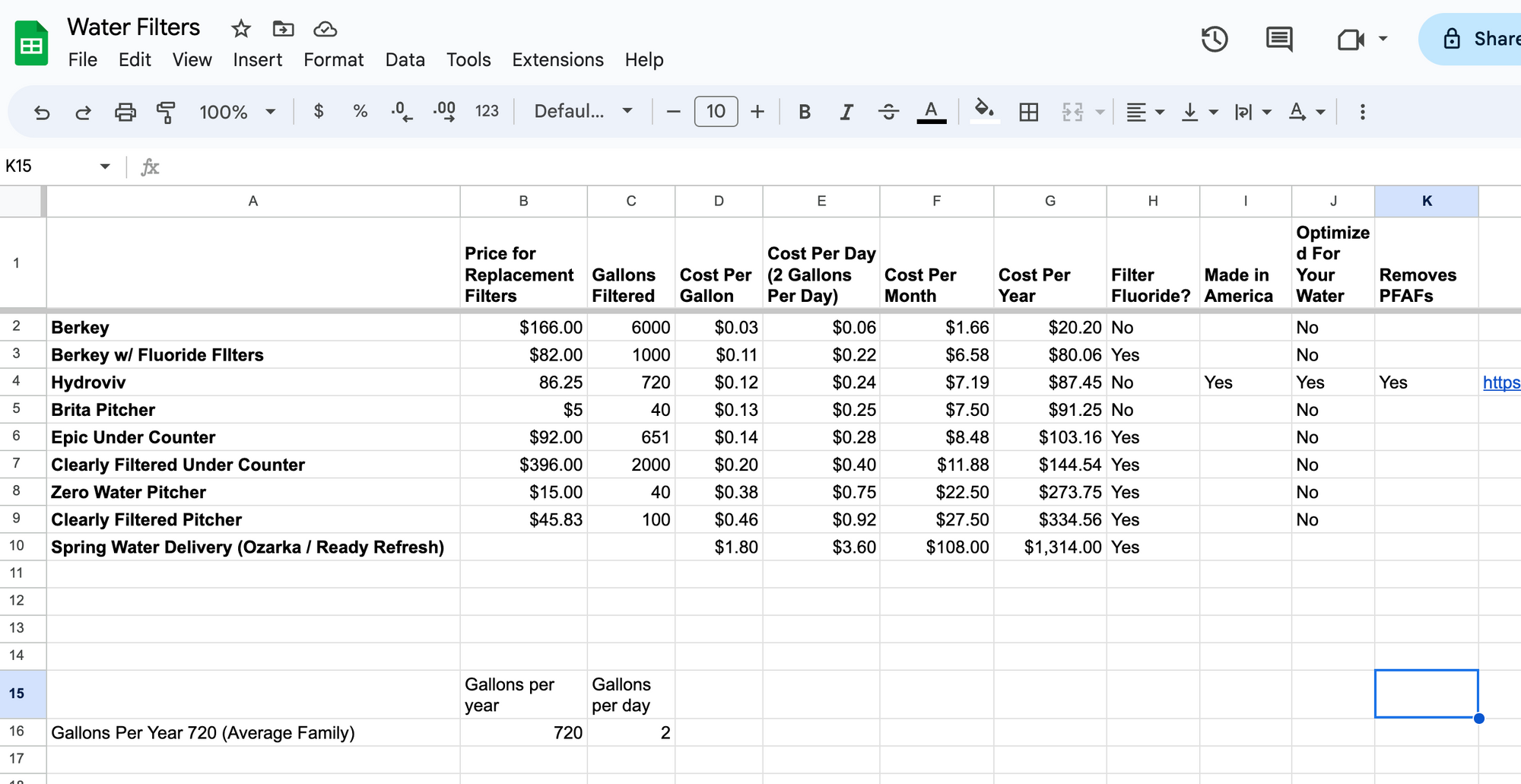
As I started building this spreadsheet, what I noticed was the price – so I sorted this spreadsheet data on column D – Cost Per Gallon.
You can see that Berkey costs 75% less than Brita when you factor in the cost of replacement filters.
Also, like I said above, Brita is not really do-able for the average family. Maybe a household of 1-2 people it would work. But not for everyone else.
My Conclusions
Okay, so I'll write a longer post later and make videos, and yes, it will be in my book, but from the research I am doing but first and foremost, what I am seeing is activated aluminum does not leech aluminum into the water.
I am getting tired (almost 10 pm) and I want to get this post up tonight – and I really need to write a longer post about this – but I have seen multiple sources saying, no, that's not an issue. Activated aluminum does not leech aluminum.
I promise to post on this soon but suffice it to say I am 100% confident with the Berkey filter and that is what I will be using going forward.
And by the way, this was not at all the outcome I expected. I was seriously thinking I was going to be going with a Reverse Osmosis or other type of getup. I will not be recommending those for a number of reasons, and I will explain why in future posts and videos.
I am going to modify my silica water recipe to reflect all of this I will be adding the silica to the water when I add it to the Berkey. Like I was doing before. And I will add a note to clean the black filters more frequently.
Sorry for the long response, Geoff.
I would have written a shorter letter if I had had more time. Not sure who said that. Mark Twain? IDK. Whatever. It's late. Let's wrap this up.
So the net net is:
1. I recommend using the Berkey to filter your water the way I originally wrote it.
2. Add the ingredients directly to the Berkey and let it filter.
3. It will not filter out the silica (OSA) and it will filter out any contaminants.
4. And it will not add aluminum to the water. I will back this last claim up with evidence in a future post.
5. Rinse your black Berkey filters under tap water every so often so they don't get slimy from the extra minerals.
Pin This Post
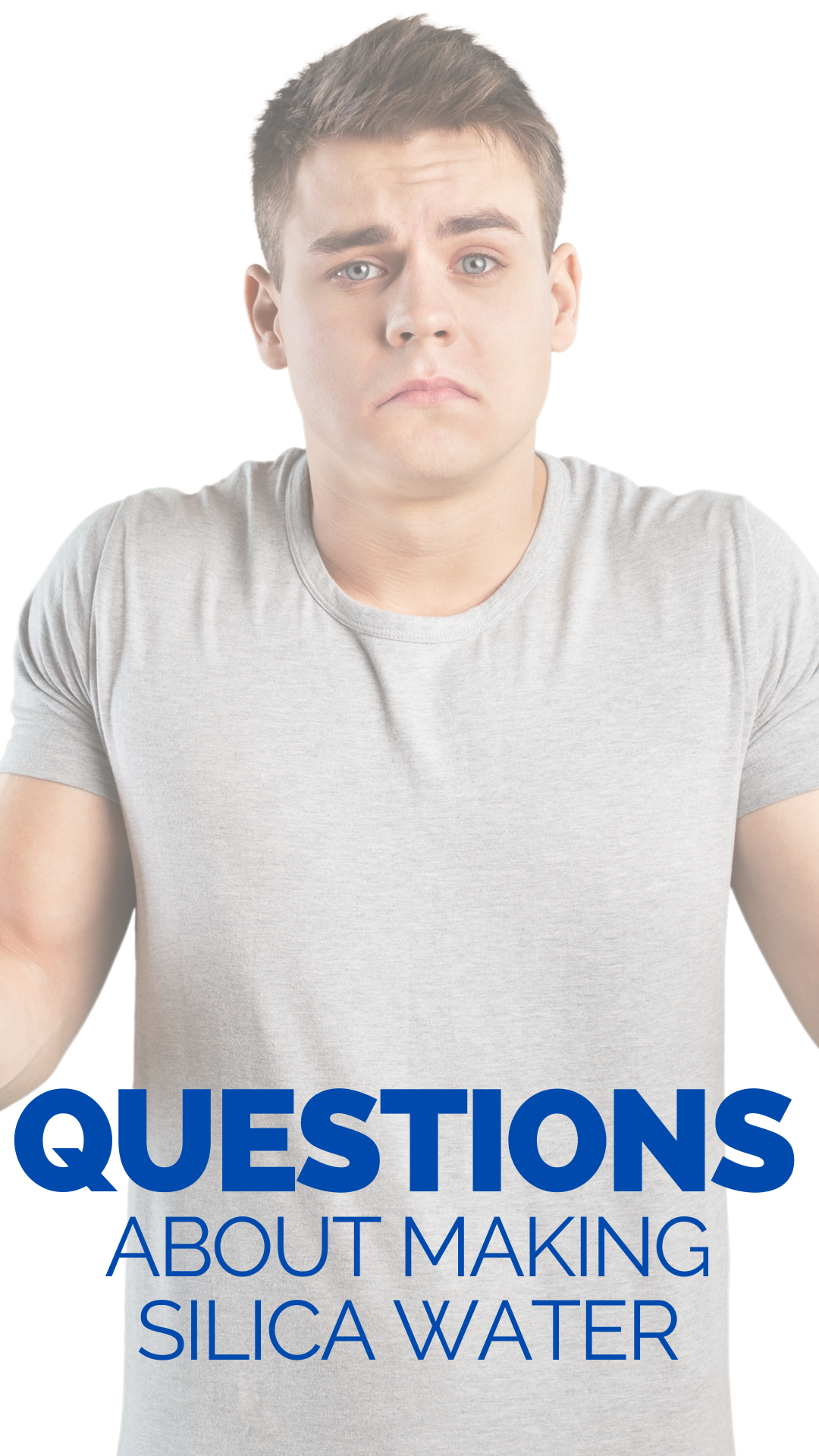
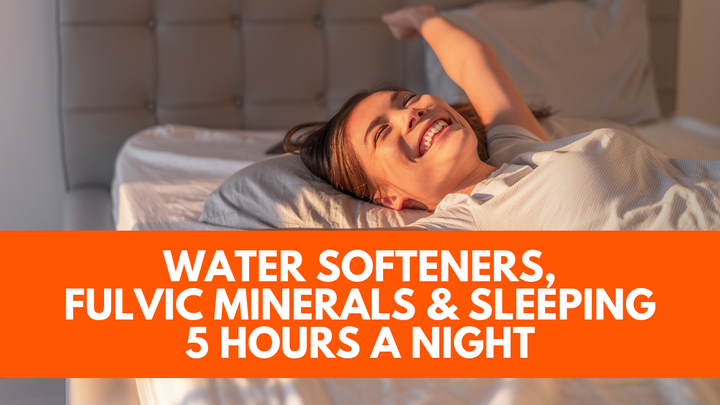


Comments ()